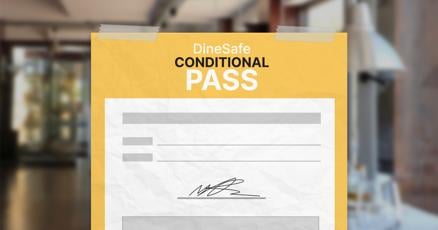Article – I’ve been tracking food safety inspections across Toronto this week, and the latest DineSafe report reveals some concerning violations at several local establishments. As someone who regularly covers city news, these inspection results always catch my attention – they directly impact where many Torontonians choose to dine.
The city’s health inspectors identified significant infractions at multiple restaurants, ranging from improper food handling to pest control issues. One particularly troubling case involved a popular downtown eatery where inspectors discovered inadequate refrigeration temperatures, potentially putting customers at risk of foodborne illness.
“Food safety violations can have serious health consequences,” explains Dr. Eileen de Villa, Toronto’s Medical Officer of Health. “Our inspection program exists to protect public health and ensure establishments maintain proper standards.”
What struck me during my research was the range of establishments flagged – from upscale dining spots to neighborhood takeout joints. This underscores that food safety issues can emerge anywhere, regardless of price point or reputation.
Several restaurants received conditional passes, meaning they can remain open while addressing the identified problems. However, these establishments must display the yellow DineSafe sign, alerting customers to the infractions. I’ve noticed these yellow signs often prompt questions from diners about the specific nature of the violations.
According to Toronto Public Health data, about 91.6% of food establishments receive a pass rating during their annual inspections. This means the vast majority of Toronto’s 17,000+ food establishments maintain acceptable safety standards – a reassuring statistic for local diners.
For those concerned about where they eat, the city maintains a searchable database of inspection results on its website. I frequently recommend this resource to friends and readers who want to check a restaurant’s inspection history before making reservations.
The most common violations I’ve observed in these reports include improper food temperature control, inadequate handwashing facilities, and issues with general cleanliness. These might seem like minor details, but food safety experts emphasize they can significantly impact public health.
“Temperature control is critical,” notes Janet Smith, a food safety consultant who works with Toronto restaurants. “When hot foods aren’t kept hot enough or cold foods aren’t kept cold enough, bacteria can multiply rapidly and cause illness.”
What many Torontonians might not realize is that establishments can request re-inspection after addressing violations. Several restaurants I’ve spoken with over the years have emphasized how seriously they take these reports, often implementing new training and procedures following infractions.
The transparency of Toronto’s DineSafe program has generally improved standards across the city since its implementation. I’ve observed this trend while covering the local restaurant scene for nearly a decade. Restaurant owners frequently tell me they appreciate the accountability, even if inspections can sometimes feel stressful.
For diners concerned about specific establishments, I recommend checking the most recent inspection results before heading out. While a conditional pass doesn’t necessarily mean you should avoid a restaurant entirely, it does indicate issues that warrant attention.
Toronto’s approach to food safety inspections remains one of the more rigorous systems I’ve encountered in my reporting across Canadian cities. The public disclosure of results creates a powerful incentive for businesses to maintain standards, ultimately benefiting everyone who enjoys Toronto’s diverse dining scene.







